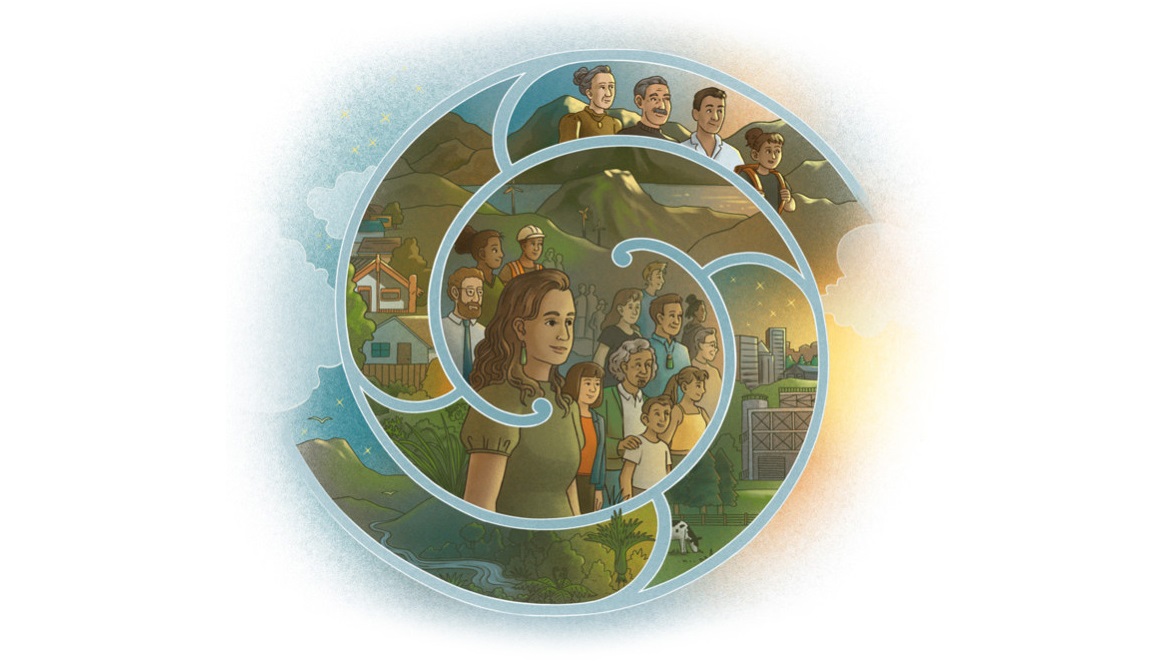News release
From:
New guide released to help communities in Aotearoa New Zealand tackle major challenges
A new guide has been released to help communities confront the major challenges our country is facing, and ensure no one is left behind. With vision and leadership, disruptive changes can become just transitions.
“A guide to just transitions for communities in Aotearoa New Zealand” will help communities develop shared visions and take collective actions to respond to challenges like climate change, rapid technological change, employment changes in regions and the transition to renewable energy in a way that fairly shares both the positive and negative effects.
Building upon widespread efforts already underway in Aotearoa, the guide offers practical ideas, methods, tools and case studies so communities can lead processes of change when facing environmental or social disruptions.
“Our communities can help drive positive change because they have a deep understanding of what is happening, how it is impacting on people and what solutions will work,” says Catherine Leining, a Motu Policy Fellow and co-lead for the project.
Janet Stephenson, a co-author from the University of Otago, says, “People in Aotearoa New Zealand feel strongly about fairness. And that's what the ‘just’ in ‘just transitions’ is all about. It is about working together to make sure the big changes we all see coming happen in a fair and equitable way.”
The guide draws on tikanga and mātauranga Māori. It includes brief case studies of transitions led by iwi, hapū and Māori communities as well as others.
Merata Kawharu, a co-author from Otago University and Takarangi, says, “Māori concepts and values have guided responsiveness to and planning for change for generations – informing both the purpose of change as well as the process by which change ought to occur. The idea of ‘just transitions’ is, then, not entirely new even if the uncertainty and complexity we collectively face today is.”
“The case studies in the guide show change can be hard and slow and success is not guaranteed. But bringing people together through inclusive processes with shared visions and values helps make the hard changes possible,” says Troy Baisden, a Motu Affiliate and co-lead for the project.
The guide covers four stages to help people work with others in their community on a just transition process:
- Connecting
- Planning
- Acting
- Adapting
Will Allen, a co-author and experienced facilitator, says, “Creating strong relationships is key to building trust and making progress. In just transitions, community diversity is a strength and leadership takes many forms.”
David Hall, a co-author from Toha, says, “There is no one-size-fits-all solution. A just transition always needs to emerge from a community process, both to capture what’s special about that community, but also to legitimate the outcomes even when we can’t all agree.”
Troy Baisden says, “Through adaptive approaches, communities can get started without knowing all the answers and adjust their pathway as they learn what works.”
Catherine Leining says, “We are grateful for all the people who inspired this work. We hope this guide can help expand the community of practitioners supporting just transitions across Aotearoa New Zealand and overseas.”



 New Zealand
New Zealand



